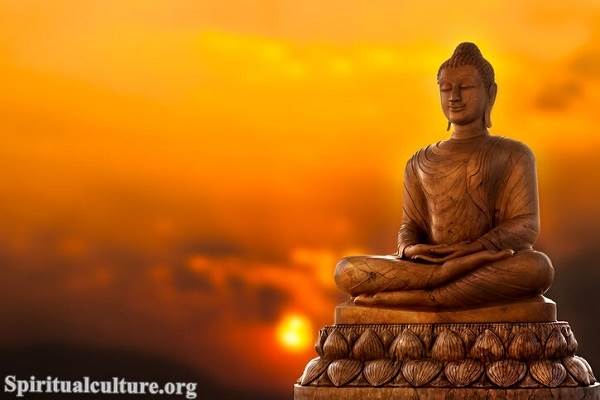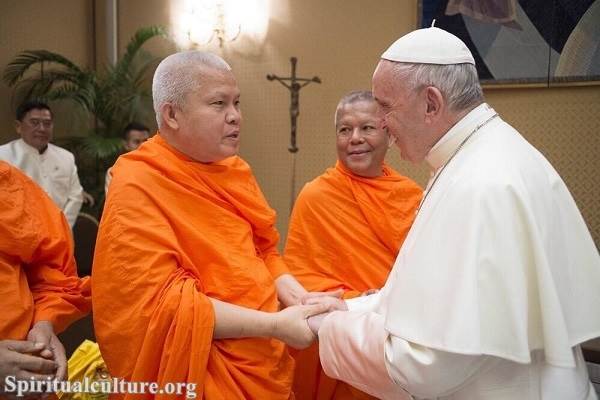There are moments in life when we pause — in stillness, in awe, in grief — and sense something beyond ourselves. A Presence. A Mystery. A whisper of the Divine. But what happens when this sense of God arises apart from tradition, outside the walls of churches, temples, or mosques? Can one truly believe in God without belonging to a religion?
As Spiritual Culture, we invite you into this timeless and timely question. It touches the core of identity, belonging, freedom, and faith. In a world more connected than ever — yet also more spiritually untethered — many are seeking a path to God unmediated by dogma, hierarchy, or inherited rituals. But does such a path exist? And if so, what does it look like?
This article explores whether it’s possible — or even meaningful — to believe in God without affiliating with an organized religion. We’ll listen deeply to spiritual seekers, reflect on sacred teachings, and trace the longing behind the question. Whether you’re devout, deconstructing, or simply wondering, we walk with you here.
The Deep Human Longing Behind the Question
Faith Is Older Than Religion
Long before temples were built or scriptures compiled, human beings looked to the sky and felt reverence. They saw order in the stars, mystery in death, power in storms, and tenderness in birth. These early experiences weren’t shaped by religion as we know it today — they were shaped by awe.
Religion emerged as humanity’s collective attempt to understand and respond to this awe. It gave names to the divine, shaped stories around it, built communities to honor it. But the longing for the Divine — the sense of Something Greater — preceded all these things.
Belief in God, in this sense, is deeply personal. It can arise in solitude, in silence, in suffering. It can emerge unbidden, without doctrine. And it can be real.
Modern Disaffiliation: Leaving Religion, Not God
Across the globe, especially in the West, people are leaving organized religion in increasing numbers. But many of them aren’t rejecting faith — they’re reframing it.
Surveys consistently show that while institutional religious affiliation is declining, belief in God or a higher power remains strong. This suggests a growing number of people identify as “spiritual but not religious.” They may pray, meditate, or contemplate life’s meaning — without joining a church or adopting a label.
This trend speaks of a spiritual hunger that resists confinement. People want God, but not always the systems that claim to define God.
What Does It Mean to Believe in God?
Not Just a Concept, but a Relationship
Belief in God isn’t only an intellectual assent. It’s often relational — the experience of being seen, known, and held by Something beyond the self.
You might never step inside a mosque, never recite a creed, never learn theology — and yet, in moments of quiet clarity, you feel a divine presence. You speak to this Presence. You trust It. You feel loved.
This is belief.
As the Psalmist wrote:
“The heavens declare the glory of God; the skies proclaim the work of his hands.” — Psalm 19:1
Nature itself invites us into belief, without intermediaries. Creation can be a cathedral.
God Beyond All Names
The world’s mystical traditions — across religions — often speak of God as beyond names, beyond dogma, beyond form. The Hindu Upanishads say, “That which cannot be spoken, but by which speech is spoken, know that alone to be Brahman.” Similarly, in Islamic Sufi poetry, Rumi wrote, “Beyond ideas of right and wrong, there is a field. I’ll meet you there.”
These perspectives honor the mystery of the Divine — not as an object of control, but as a Presence beyond comprehension.
To believe in God, then, doesn’t necessarily require adopting a fixed religious system. It may involve surrendering to mystery — and walking by trust, not certainty.
What Religion Offers — And Why Some Still Seek It
The Gift of Community and Wisdom
While belief in God can be personal, religion offers something more: shared stories, rituals, moral frameworks, and centuries of spiritual wisdom. Religion connects individuals to a lineage of seekers and saints, practices and prayers, festivals and fasts.
For many, this structure is not a burden but a blessing. It grounds the spiritual life in rhythm and community. It offers mentors, guides, and sacred texts that help navigate the journey.
The Wound of Religion
Yet others walk away because of harm experienced within religion — whether through exclusion, judgment, abuse, or hypocrisy. Some were never included in the first place. For these, disaffiliation is not a rebellion, but a form of healing.
And yet, the ache for God remains. The silence between systems can become holy ground. Many wounded by religion still pray, still seek, still believe.
Is It Enough? The Challenge of Solitary Belief
Without Ritual, Without Story?
Believing in God without religion can be profoundly freeing — but also isolating. Without shared rituals, spiritual life can become irregular. Without sacred stories, faith can feel untethered. Without guidance, one can drift.
Religion, for all its flaws, helps translate transcendent experience into a daily walk. It gives shape to worship and wisdom to questions.
So while belief without religion is possible, it may ask for deeper inner work, intentional practice, and personal commitment. Otherwise, the flame of faith may flicker alone.
When Belief Becomes a Journey
For some, belief begins outside religion — but later returns to it. A person might meet God under the stars, then find resonance in a psalm. Another may reject a childhood faith, only to rediscover its beauty in adulthood.
The spiritual path is rarely linear. God meets people where they are — not only in sanctuaries, but also in silence, suffering, wonder, and wilderness.
What Sacred Texts Say
The Bible
- “The wind blows wherever it pleases. You hear its sound, but you cannot tell where it comes from or where it is going. So it is with everyone born of the Spirit.” — John 3:8
This passage speaks of the Spirit’s freedom — not confined by human institutions. Belief in God can be real and Spirit-born, even outside organized structures.
- “He is not far from any one of us. For in him we live and move and have our being.” — Acts 17:27–28
God is present and accessible to all, not just the religious.
The Bhagavad Gita
- “Whatever path men travel is My path: no matter where they walk it leads to Me.” — Bhagavad Gita 4:11
This powerful verse affirms the accessibility of the Divine across diverse paths, not just institutional religion.
The Quran
- “To each among you, We have prescribed a law and a method. Had Allah willed, He would have made you one nation [united in religion], but [He intended] to test you in what He has given you; so race to [all that is] good.” — Quran 5:48
Diversity in spiritual expression is divinely permitted, even willed.
Faith Without Religion: Real Examples
- A scientist who watches the stars and prays quietly each night.
- A refugee who has lost everything — except her trust in God.
- An artist who sees divinity in color and creation.
- A former churchgoer who now meditates in nature but still feels held by God’s love.
Their lives bear witness: Belief is not bound by buildings.
Reflect and Reimagine
So — can someone believe in God without belonging to a religion?
Yes. And many do.
Spiritual Culture honors both the freedom of personal belief and the depth of religious tradition. Belief in God can emerge in the unlikeliest of places — a hospital room, a mountain trail, a poem, a moment of despair. And sometimes, belief outside religion becomes a doorway back into it — or into a new, deeper way of being.
What matters most is not the label we wear, but the truth we live. Do we love? Do we seek? Do we listen for the sacred?
Whether you are inside a religion, outside of it, or somewhere in between — your longing matters. Your questions are holy. And your belief, however it forms, is part of a story far greater than yourself.
Spiritual Culture walks with you — in wonder, in mystery, and in love.


